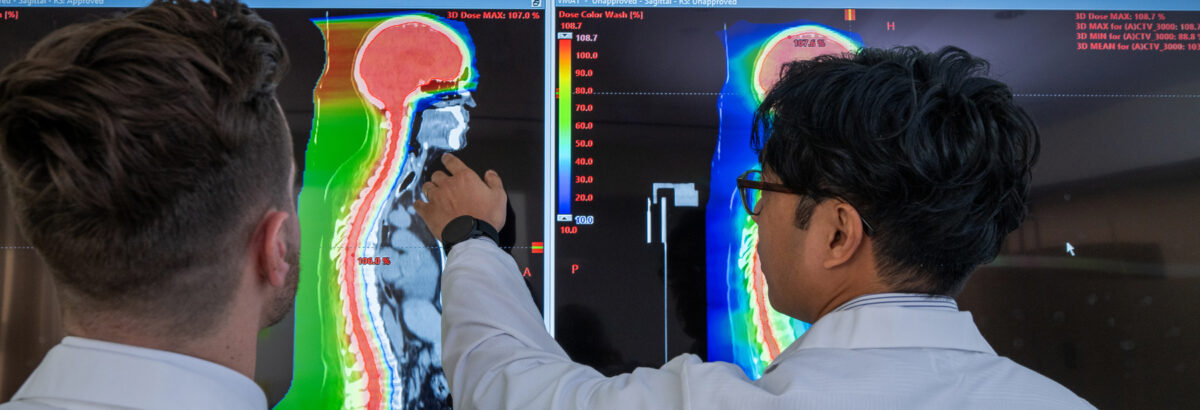Minimizing Long-Term Side Effects
Lymphomas often occur in the chest. Proton therapy can treat these tumors with high-dose radiation while minimizing damage and long-term side effects to the adjacent normal heart, lungs, breasts and esophagus. Both Hodgkin and non-Hodgkin lymphoma patients can have significant benefits from proton therapy. Proton therapy is particularly helpful for patients who have had prior therapy, tumors that recurred after prior radiation therapy, large and bulky tumors, and in children.
Lymphomas We Treat Include
- Hodgkin lymphoma
- Non-Hodgkin lymphomas: Diffuse large B-cell lymphoma, follicular lymphoma, mantle cell lymphoma, marginal zone B-cell lymphomas, gray zone lymphoma, Burkitt lymphoma, primary central nervous system lymphomas
A Honeymoon Awaits After Facing Hodgkin’s Lymphoma
Just weeks before his wedding, Jack learned that he had Hodgkin’s lymphoma. Thoughts of doom and gloom started setting in until he met with the team at the New York Proton Center. Now, cancer-free and an advocate for proton therapy, he has much to look forward to.
Pencil Beam Scanning at the New York Proton Center
Patients at our center receive pencil beam scanning, a highly sophisticated and the most modern form of proton therapy. It uses an extremely narrow beam of protons to “paint” the intended radiation dose onto the tumor. The technology can target specific parts of the tumor with different radiation dose levels, while better protecting the surrounding normal tissues from irradiation.
Not All Proton Therapy Is Created Equal
Many other proton centers use “volumetric” beams that deliver a fixed quantity of energy to the entire tumor. But the pencil beam scanning technology at the New York Proton Center delivers “intensity-modulated proton therapy,” or IMPT.
Widely considered the most advanced form of proton therapy, IMPT can target different parts of the tumor with different radiation dose levels based on the prescription and the tumor’s exact location, while better protecting the surrounding normal tissues from irradiation. That’s particularly valuable when treating the most complicated tumors, those residing in the fissures of the head, neck and skull base.



